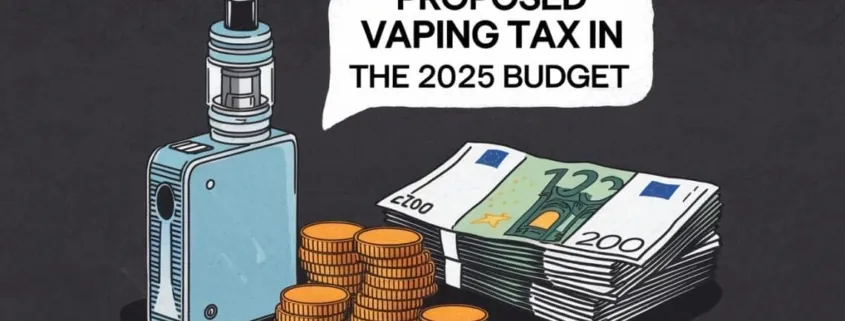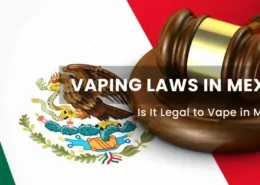France to Increase Vape E-Liquid Tax by 38%
Vape Advocacy Group Claims Tax Hike Will Make Vaping Too Expensive for Smokers Trying to Quit
The French government plans to implement a substantial 38% tax increase on e-liquids, according to FiVape, a leading French vape awareness organization. The proposed legislation would add a flat-rate tax of €0.15 per milliliter of e-liquid, regardless of whether it contains nicotine. FiVape warns that this new law could put lives at risk by making vaping too expensive for smokers attempting to quit.
In a statement, FiVape emphasized the crucial role of vaping in helping people quit smoking over the past decade, stating, “Vaping has been the number one tool to help people quit smoking for over 10 years. Its impact is unprecedented and historic.. Taxing e-liquids means taxing the No. 1 tool for helping people quit smoking. In terms of public health, this is a policy that runs counter to all health logic, which disregards the experience and tangible results obtained by vaping over the last 10 years.”
No Tobacco Tax Increase Planned for 2025
While the government plans to raise taxes on e-liquids, Minister for the Budget Laurent Saint-Martin confirmed that there are no plans to increase taxes on tobacco products in 2025. During a meeting with tobacconists on October 17, Saint-Martin stated that the government’s budget does not include any further tobacco tax increases, although indexation to inflation for tobacco products will be maintained, along with current aid levels for tabacs.
FiVape claims that the proposed tax increase is a direct result of tobacco giants lobbying the government in an effort to curb the rising popularity of vaping as an alternative to smoking. The organization asserts that since 2019, cigarette companies have successfully halted the steep decline in smoking prevalence in France by employing hundreds of lobbyists and sophisticated methods of influence.
Vape Firms to be Hit Hardest by Proposed Legislation
The proposed e-liquid tax would result in significant price increases for standard e-liquid sizes used in rechargeable vapes. Prices for 10 ml and 50 ml e-liquids would rise by 25% and 38%, respectively, while disposable vapes, which are set to be banned in France, would only see a 7.5% increase due to their smaller 2 ml capacity. FiVape points out that the legislation would have little impact on the tobacco industry, as it holds only 15% of the vaping market.
FiVape accuses tobacco companies of positioning themselves to offer only closed system products, such as single-use puffs or cartridges, in an attempt to impose these systems at the expense of open vaping, which requires advice, expertise, and allows for better smoking cessation results. The organization describes the proposed tax hike as a “health, ecological, and ethical scandal,” arguing that responding so blindly to the desires of the tobacco industry is incomprehensible.
Anti-Smuggling Operations and European Standardization
Minister Saint-Martin announced a focus on anti-smuggling operations to help tobacconists, with the launch of ‘Colbert III’ to replace the previous ‘Colbert II’ operation. Colbert II, which began in 2024, saw 30,000 checks undertaken across 15 airports and seven border crossings, resulting in the seizure of 24 tonnes of tobacco and the closure of 52 businesses.
Saint-Martin also acknowledged that excessive price differences between France and its European neighbors could weaken tobacconists, particularly those in border areas, and contribute to the persistence of a large parallel market. He stated that the French government would contact the European Commissioner responsible for taxation in Brussels to make concrete progress on tobacco taxation and rebalance border tobacco prices, although no concrete date was given for when this may happen.
As France navigates the complex landscape of vaping and tobacco regulation, the proposed e-liquid tax hike has sparked intense debate about its potential impact on public health and smoking cessation efforts. The government must carefully consider the concerns raised by vape advocacy groups and independent retailers while working towards a more harmonized European approach to tobacco and e-cigarette taxation.
- Malaysia Negeri Sembilan Backs Vape Ban, Awaits Clear Laws - August 5, 2025
- Is It Illegal to Vape or Smoke While Driving in Massachusetts? - August 5, 2025
- Austria Plans to Ban Disposable E-Cigarettes - August 5, 2025








